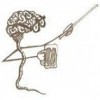Teaching Critical Thinking
My apologies, but I think the high school and college teacher needs to avoid such broad sweeping questions (very few students nowadays - and I see them in my classes all the time - are ready for such questions). I think you have to start small demonstrating and teaching individual skills and components of critical thinking, and do it every week gradually increasing the difficulty.
First you introduce "point of view" to the class...how there are multiple points of view and each person's situation and life experience affects their point of view. ASnd some points of view are more valid than others - we give more weight to the jury member who heard all the trial testimony that we do to the average Jo or Jean, who simply read newspaper summaries of the trial.
Then you discuss the vast difference between facts educated guesses or presumptions, and personal emotion based opinions, working with them until they can consistently recognize the difference. I would introduce short pieces of good writing, editorials, essays, letters to the editor, etc to illustrate the differences.
Introduce an argument and how you build an argument. What kind of evidence is needed? How do we know which evidence to rely upon? How do we verify evidence? Is one opinion, no, are two "undocumented" opinions on the inetrnet sufficient? Why do we foot note? Why do we use citations? How do we find reputable, solid sources, internet or library? All of these are part of critical thinking.
Discuss bias, what it is, what kinds there are, how to recognize it, whom to trust. This a good place to talk about objective versus subjective statements, ideas, arguments, speeches, etc. Mention that human beings can never be totally objective, but being as objective as possible and being aware of, and admittint to, one's own subjective tendencies is very important.
I could go on and on, but I won't. But I will say that I think American educators are for the most part doing a pretty awful job of teaching critical thinking... and our students have spent years focusing on anything and everything but critical thinking.
I would find a very, very simple book on critical thinking and I would go through it slowly and bit by bit build in my students the skills they need to think carefully, thoughtfully, and critically. Perhaps changing the future of America for the better.
I know I am leaving lots of important things out, but all my notes are in folders in my office; this is off the top of my head and I would love for others to add to it...to describe the components and skills they think are essential to critical thinking. Thanks.I always get accused of being pedantic when I talk about how Aristotle's Rhetoric is the greatest book ever written, and your point is exactly why.
The value of critical thinking isn't just to get through school or figure out whether an advertisement or article or some politicians argument is total B.S.--although that's a nice side benefit. It's about the pursuit of truth and the solving of problems for everyone.
A populace capable of critical thinking is a populace that can work together and solve problems.
Critical thinking takes a lot of effort though. Not sure that's going to be popular in a Pop Tart, YouTube, Twitter world. Hard to ferret out truth in 140 characters.I may be uninformed about this, since it's been 30-some years since I went to a High School class, and didn't go to College, but....
I was of the opinion that High School teaching was limited to actually learning facts and history and proper English, etc. instead of catering to philosophies. Because "critical thinking" is, from what I understand, an attribute we all have already by the time we reach High School. I call it common sense.
But perhaps you can provide me with some reason you're talking about politics and kids solving the world's problems in the same arena where kids are supposed to be learning facts, figures, and technology, leaving "saving the world" up to the grownups as it should be, until of course those kids grow up and become the grownups?Few people today have the skill and training to practice critical thinking as a problem solving tool. Rather, they use the "common sense" you reference, but that common sense is a combination of grandma's advice, limited personal experience (usually twisted and distorted by time and forgetfulness), and emotional desire all mixed into one.
Another problem is that few people can be, or even actually try to be, objective in problem solving. It is one thing to try to, say, fix a broken car; it is quite another to try to fix a social problem that carries emotional baggage. Yet that is a very important part of critical thinking.
And yes, it is because kids grow up to be adults and then must solve the world's problems while you and I sit in the rocking chair and watch them. They need to be able to think and reason critically and rationally rather than with their emotional side. Or so I see it.I can understand that view.
But really I believe they can get that knowledge from sources outside the Education Dept.
And let's not count "grandma's" views out. Even when I, for instance, am in a rocker, I hope I won't be just sitting there watching the world go by. I hope that my age and experience will count for something.
I'm trying to look at this with more empathy. I'm trying to think critically about why I'm initially so opposed to this view. And I realize that when this subject comes up (about how teachers try to engage kids into adult decision-making), that I instantly recall Obama and another liberal (might've been Al Gore) mocking the input of parents and grandparents, saying that kids know more than their parents, etc. And that, to me, is such nonsense! That wasn't critical thinking that came from their mouths; it was an attempt at liberal indoctrination upon impressionable kids who many of were going through the natural stage of teen rebellion already. Kids should get to be kids while they're kids. And adults should raise them, not the other way around. And while it's true that many kids may indeed know more than their parents/grandparents, and some parents still don't behave like adults, the main thing is that kids are allowed to be kids, given time to grow, before they're saddled with the weight of the world or allowed to govern the world. I believe that indeed without that time, they will actually not be ready to make those critical decisions properly when they do reach adulthood. We should not shoulder kids with adult responsibilities.
Teachers shouldn't be placed in the role of raising their students. Not to the degree that's being done these days anyway. And liberal teaching, from what I've seen, is a form of "passing the buck" to a generation of children who need better role models and teachers, instead of trying to get them to clear up the mess that activists have made. And I say that because it's obvious that that's a motivation that our Education System has introduced into our schools, when it should've stayed in adult circles where adults' critical thinking would've soon debunked it anyway. The young generation are being used as guinea pigs by many teachers. Sure, teach 'em how to fix a car, or a broken arm, or how to build a better bridge or vacuum cleaner, or how to become lawyers and businessmen and hold a job, teach 'em the value of money, and etc. yes! Heck, I'd be happy if they'd just teach 'em how to spell properly! lol. But don't force them to grow up before they can handle it.I think younger children (maybe up to 15) can be taught only the very, very basics of critical thinking. The logical, reasoning centers of the brain don't develop until much later and they simply aren't capable of learning more than that.
By high school, though, students need to begin learning more. Given the ability to reason critically, they can "debunk" the trash that some adults shove at them all by themselves; without it they simply take it in because, after all, adults are the teachers.
No, teachers should not become parents and should not be charged with raising their students (although they increasingly are). They do, however, need to teach their students how to reason and solve problems. That is exactly why they are there; not only to give facts and figures, but to teach students how to think.
That is, after all, the largest accomplishment of colleges; to teach students to think and reason. Stuffing them with knowledge is important, but all that knowledge isn't nearly as valuable as knowing how to reason.wilderness - I couldn't agree with your response more. I wish I had expressed myself originally as eloquently as you just did. To me there is a point when information or knowledge is insufficient but hen reasoned judgements need to be made - to me reasoning properly and thoughtfully is the very CORE of critical thinking. Thank you for weighing in on this issue.
I am not quite sure what you mean by young people being used as guinea pigs. And I don't see how or why critical thinking skills have to or even should be used to solve "political or world problems?" Not with high school students.- you are right, that is presenting inappropriate adult problems to young people....and we should not be doing that.
I think of critical thinking as basic skills of interpreting information, thinking carefully about what one hears and reads before one accepts it blindly. There are a lot of information sources vying for our children's and grand-children's attention and I don't think most of them have the skills to decipher good information from bad.
I do not think teachers should be raising children, but that is not at all what I had in mind. And I don't know what Obama said, but I ahve heard that comment before..."Children today know far more than their parents did. First, I don't believe that. Second what is usually meant is that they have been exposed to more pies of raw information that we were. OK, but raw data does not make for understanding, intelleigence, judgement, or common sense...alll things that I think previous generations have had more of...your generation and mine...we may even be the same generation, I don't know.
wilderness - I think you expressed it very well in your third paragraph. That is what I would like to see more of and I think we are desperately lacking in America.
I don't mean philosophies when I say critical thinking. Those are best left to upper level college courses. What you refer to a s common sense is the foundation of critical thinking and most of us over 40, certainly over 50 had a great deal of that by the time we reached high school...I would agree with you.
But do you really think that most of the current generation that has grown up on 4 -6 hours a day of television, seldom reads books, considers a five minute YouTube video "kinda long", attends schools that have increasingly been stripped of rigor over the past 30 years, who seldom have a real conversation with their parents, or anyone else for that matter, who are extremely skilled at sending 140 character messages and walking around attached to their IPODS....
Has most of this generation (not all of course) had the time or opportunity or need to develop any common sense upon which critical thinking could be based. I don't think they have and it of great consern to me, which is why I think more systematic effor should be paid to critical thinking in High School.
I like when phdast7 enters the forums. If you haven't read her hubs, you're missing some quality, informative, well-written hubs.
I work in early childhood education, the foundation of learning. I very much use critical thinking skills that are developmentally appropriate for 3-5 year olds.
Parents and teachers need to be helping their children develop their cognitive skills from the very beginning. I have written a couple of hubs in regard to how this can be done, and what kind of questioning helps facilitate learning. Actually the questions can also be used by any age. The hub topic is what we should be teaching in early childhood.
I think in the higher grades, especially high school, it can depend so much on the teachers and their expectations for their students. I don't think there is any denying that honor students usually have some of the best educators as their teachers. My oldest son had honors classes and his teachers were excellent. His critical thinking (class) teacher had such an ability to get the best from her students. It was one of his favorite classes.
But his teachers expected them to perform well. That's not always the case in regular classrooms.I agree with the concept. Ability to comprehend, analyze, evaluate and consider solutions for issues is a skill practiced in varying degree's by many. I'd also have to include though that 'environment' is important. We have youths in unstable environments which may cause lack of time, to look inwards along with loads of homework
 . Our world has one moving quickly along until quiet time is available, to think. I don't know if 30-40 mins of class time is enough but maybe teachers can introduce such projects with a essay requirement related to their subject for students. Good topic
. Our world has one moving quickly along until quiet time is available, to think. I don't know if 30-40 mins of class time is enough but maybe teachers can introduce such projects with a essay requirement related to their subject for students. Good topic 
I think, Dame, you have something here. There isn't enough time to teach critical thinking in high school classrooms. However, through projects such as essay writing, students can absorb some of the techniques as a beginning to thinking creatively. I find college students entering college who have a difficult time putting together thoughts to make an argument.
I also agree with RebekahElle that critical thinking begins in preschool. If a child is presented with a stimulating environment using different learning methods, such as writing (use it must be age-appropriate), it will allow a child to begin the art of critical thinking.
I'd like to sit in the back of the class and absorb the discussion. In fact, that is the crux of my process regarding Critical Thinking.
Although, I would like to ask your opinion regarding the "Kahn Academy."Hi gjfalcone - I hear lots of very good things about Khan Academy. I even have an icon on my desktop so I can get there quickly if need be. But sadly I seldom have had the time to do any serious reading or exploring in their archives. I spent a couple of hours looking at their materials when I first discovered the site about nine months ago.
A quick perusal left me very impressed. Of course their materials were most numerous and well developed in mathematics and computer science, and maybe other sciences. Not as much material in the Humanities, which is where I am. Of course that was a while ago and they may have increased their series by now.
I think it a fabulous idea and a terrific resource.Not sure how businesses and degree accrediting agencies will evaluate the learning and development that occurs using Khan materials. But maybe that doesn't matter. Maybe all that matters is that highly motivated learners have this rich resource to draw from.
What do you think about Khan? What have you heard? Do you know anyone personally that is working their way through course materials?
It began withSal Kahn helping his niece with Algebra over the internet, on U Tube. Apparently he continued to help her through this venue, and noticed the amount of hits he was receiving was enormous. Soon thereafter, the good folks of cyberspace posted questions and eventually made requests. He was doing this all the while out of a closet in his apartment, location unknown( NY?)Then one day he heard Bill Gates;The Bill Gates mentioned his name with regards to home schooling his daughter.
You know I was gonna do a hub on this, its such a great story, eh?
Anyway, Bill Gates' assistant contacts him, Sal Kahn, and asks if his calendar is free next month. I believe the guy was out of work or between jobs, so Gates sent out his Private jet and he was off to Seattle.
The next thing he knows, Gates is funding the Kahn Academy.
I initially heard about it in connection with Cheeg. The mission statement is a free quality education. I plan on researching the business end of it but from what I understand, the methodology is based on fully comprehending each aspect of a subject topic prior to moving on to the next in the series. In other words, a grade of 'C' is not a passing grade. A is a passing grade.
I believe it was on 60 minutes last week.gjfalcone - You do know more about it than I do. You should do a Hub on it. That would be great. The quality is excellent and I think over time they will continue filling in some of areas where there are gaps. Do a Hub!

TheresaLet's just say I easily get sucked into the human interst side of the story. As far as the educational value, my concern is limited to whatever it takes to improve humanity; I've concluded that path is provided through the road of education. I realize my world view sounds simplistic, but the world is far too complicated at present. As a parent in this day and age, one needs a Phd in Psychology, an MBA in finance and a Masters in Philosophy. Enjoy the remainder of spring break Professor T
Related Discussions
- 28
So, Now the Right wants to ReRight High School History Textbooks
by Credence2 10 years ago
The Right, in its fixation on parochial thought and indoctrination has provided just another reason for outrage. Is it no wonder they are the natural enemy of independent thought and inquiry. Of course, all of our places of higher learning are dens of liberal inquity, where people are actually...
- 16
Calling All Students/Teachers
by Kathryn L Hill 12 years ago
This is a place for anyone with opinions on the process of true learning and retaining information at any age level, children through adults.Questions:1. Does true learning takes place when the desire to learn is activated by the will of the student?2. Or instead, is it the teachers job to motivate...
- 34
Magical thinking vs Critical thinking
by Sophia Angelique 13 years ago
Critical thinkers are in the minority these days. Between 1900 and about 1960, critical thinking was taught at schools so that people would reject magical thinking. During the past thirty or forty years, with the decline of solid academic education, more and more people have reverted to magical...
- 6
What are good card games to play with children to build critical thinking skills
by Heidi 8 years ago
What are good card games to play with children to build critical thinking skills?
- 21
Is school (for children) a waste of time and money?
by Peeples 12 years ago
Is school (for children) a waste of time and money?Thinking back to elementary, middle, and high school I can remember very little that I have actually needed to know outside of basic math and reading. So is there really a purpose to all those years of schooling. Is there a better way that could be...
- 24
Do You Think It's Ridiculous that Education Majors Become Teachers?
by Michael Ward 13 years ago
Do You Think It's Ridiculous that Education Majors Become Teachers?Every time a teacher in high school introduced themselves they bragged about their degrees from some big name university and I would always ask "What was this degree in?". They reply, every single time,...













